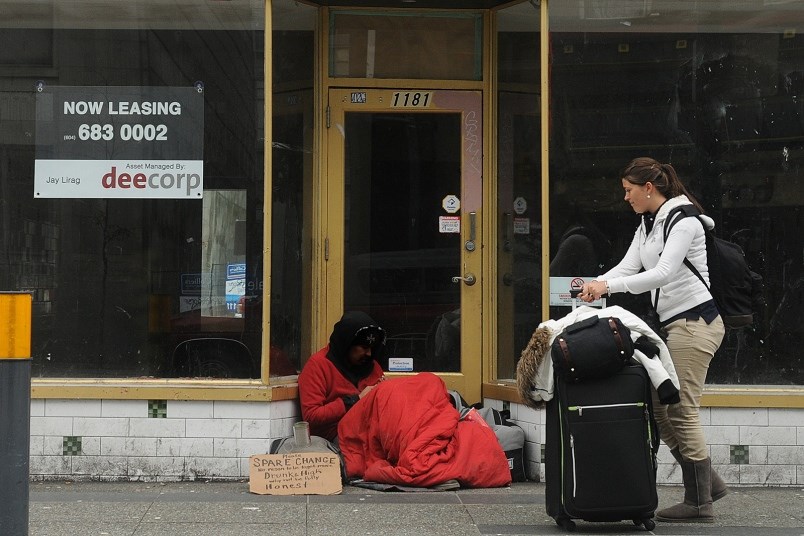Last year, homelessness, housing and poverty emerged as top national concerns for Canadians. Now, as U.S. relations overshadow public sentiment, our recent Research Co. survey reveals a shift in how the people view the issues.
Fewer Canadians now view homelessness as a major problem nationwide (55 per cent, down 11 points since February 2024), provincially (48 per cent, down 13 points), municipally (34 per cent, down eight points), or in their neighbourhood (21 per cent, down five points). Only B.C. and Alberta still show majorities concerned about provincial homelessness (58 per cent and 55 per cent). Similarly, the belief that homelessness has increased has dropped significantly across all levels since early 2024.
One might infer this signals progress, but that’s not the case. A growing majority criticize federal and provincial governments’ handling of homelessness as “bad” or “very bad” while nearly half (47 per cent, unchanged) fault municipal administrations.
When asked about causes, 45 per cent blame a lack of affordable housing while 44 per cent point to addiction and mental health issues. Canadians tended to place less blame on other factors such as poverty (35 per cent, down five points), economy (30 per cent, down three points), personal choices (25 per cent, down one point) and trauma (20 per cent, down four points).
Canadians consistently endorse solutions. Over three-quarters support increasing mental health support, more temporary housing options, and incentives for affordable housing developers. Also popular are using tax money for housing units (68 per cent) and changing zoning laws to allow more units (62 per cent). The re-zoning strategy garners strong support from younger Canadians (18-34: 64 per cent) and British Columbians (64 per cent), even showing rare bipartisan agreement between Liberal (67 per cent) and Conservative (63 per cent) voters.
One striking finding is the growing support for dismantling encampments or “tent cities.” Just over half of Canadians (51 per cent, up five points) agree with this immediate action, climbing to 56 per cent in B.C. and Alberta.
Looking ahead, 55 per cent of Canadians (down six points) believe homelessness can be eradicated with proper funding and policies, while 40 per cent (up five points) think it will always be a problem. A generational divide is clear: 70 per cent of 18-to-34-year-olds believe it can end, compared to just 41 per cent of those 55 and over.
In a year marked by economic uncertainty, homelessness may be taking a backseat in public consciousness. While still seen as a major problem, the intensity has softened. Most Canadians want governments and developers to collaborate on solutions, but public patience with encampments appears to be waning.
Results are based on an online study conducted from June 30 to July 2, 2025, among 1,001 adults in Canada. The data has been statistically weighted and holds a margin of error of +/- 3.1 percentage points.
Mario Canseco is the president of Research Co., a public opinion research firm.



